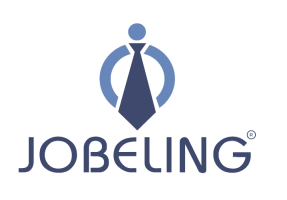
Mastering vocal auditions is about much more than singing on pitch or memorizing lyrics—it’s about telling a story, captivating your audience, and demonstrating your readiness to step into a professional role. Whether you’re auditioning for a local production, a high-profile competition, or a once-in-a-lifetime opportunity, the preparation you put in beforehand will determine your success.
This guide by Jobeling takes you through the entire process, from understanding the significance of auditions to preparing your mind, voice, and presence for the spotlight. Every detail matters, and this article ensures that you leave no stone unturned.
Contents
- 1 Understanding the Importance of Vocal Auditions
- 2 Advanced Techniques for Vocal Training
- 3 Perfecting Stage Presence for Vocal Auditions
- 4 Effective Song Preparation for Vocal Auditions
- 5 Preparing Mentally and Emotionally for Auditions
- 6 Navigating Online Vocal Auditions
- 7 Building a Professional Repertoire
- 8 FAQs
- 9 Conclusion
Understanding the Importance of Vocal Auditions
Every singer’s journey involves standing in front of a panel of judges or an audience and sharing their craft through vocal auditions.

These auditions are more than just a test of your technical abilities; they provide a glimpse into your potential as a performer. This makes them a vital part of building a career in music or musical theater.
For casting directors, vocal auditions are the key to finding talent that aligns with their creative vision. They look for singers who have not only the technical ability to meet the role’s demands but also the charisma and emotional depth to bring their work to life. As a singer, your job is to balance these expectations—showcasing your vocal range and skill while delivering a performance that feels genuine and unique.
How Vocal Auditions Define Opportunities
Success in vocal auditions can open the doors to career-defining opportunities. Whether it’s landing the lead in a production, earning a scholarship, or being scouted by industry professionals, auditions can be pivotal moments in a singer’s life. Beyond the immediate outcomes, the process itself offers valuable lessons. Even unsuccessful auditions help performers grow, hone their craft, and better understand the nuances of the industry.
It’s important to remember that auditions are as much about perseverance as they are about talent. Each audition is a stepping stone, contributing to your personal and professional growth.
Advanced Techniques for Vocal Training
Improving Vocal Flexibility and Range
Expanding your vocal range is essential for tackling diverse audition material. To do this effectively, you’ll need to work on flexibility as well as endurance. Start by practicing scales in half-steps, gradually extending your range in both the upper and lower registers. Chromatic exercises are particularly effective, as they challenge your ability to transition smoothly between notes.
Another powerful exercise for flexibility is the use of melismatic runs—sequences of multiple notes sung to a single syllable. These require precision and agility, and regular practice will sharpen your control over phrasing and pitch.
Working with a vocal coach can further enhance your flexibility. They can tailor exercises to your voice and address specific technical challenges, ensuring your voice is ready to adapt to different musical styles and roles.
Strengthening Vocal Projection
Projection is vital in auditions, especially when performing in large spaces without amplification. To improve your projection, focus on engaging your diaphragm during breathing exercises. Controlled breathing strengthens your ability to produce a powerful, resonant sound without straining your voice.
Resonance also plays a key role in projection. By experimenting with vocal placement—directing sound vibrations into your chest or nasal cavity—you can create a fuller, richer tone that carries effortlessly through the room.
Practice singing in different environments to understand how your voice interacts with acoustics. This will help you adapt your projection and resonance to the space you’re auditioning in, ensuring your voice reaches every corner of the room.
Perfecting Stage Presence for Vocal Auditions
Stage presence is about creating an engaging experience for your audience, whether you’re performing for one person or a packed theater.

It’s the art of making your performance memorable by connecting emotionally and visually with your listeners.
Using Body Language to Enhance Expression
Body language is a subtle yet powerful tool for communicating emotion. Start by analyzing the mood and message of your song. Is it joyful, melancholic, or triumphant? Let this understanding guide your movements. For a reflective ballad, small gestures and controlled movements may enhance the intimacy of your performance. For an energetic number, more dynamic movements can amplify the energy.
Rehearse your performance in front of a mirror or record yourself to evaluate how your body language complements your singing. Pay attention to how you carry yourself during transitions, as these moments can either enhance or disrupt the flow of your performance.
Building Rapport with the Panel
The first impression you make on the judges begins before you sing a single note. When you walk into the room, maintain a confident yet approachable demeanor. Smile, make eye contact, and greet the panel warmly. These simple actions establish a positive rapport and set the tone for your performance.
During your audition, avoid appearing rushed or overly rehearsed. Instead, approach your performance with a sense of spontaneity and authenticity. Judges appreciate performers who can balance preparation with genuine connection.
Effective Song Preparation for Vocal Auditions
Song choice is one of the most critical decisions you’ll make during your preparation for vocal auditions. Your selection should reflect both your technical ability and your unique artistic identity.
Breaking Down the Song
Once you’ve chosen your song, dissect it thoroughly to understand its structure and emotional arc. Analyze the lyrics for meaning and subtext, and consider how the music enhances the story being told. This deeper understanding allows you to deliver a performance that feels cohesive and purposeful.
Divide the song into sections and focus on transitions. Each phrase should flow naturally into the next, maintaining a consistent tone and energy throughout. Practice varying your dynamics to add depth and dimension to your interpretation.
Memorizing Lyrics with Confidence
Memorization is about more than rote repetition—it’s about internalizing the lyrics so they become second nature. Start by speaking the lyrics aloud, paying attention to their rhythm and phrasing. Once you’re comfortable, practice singing them with the melody.
Visualization can also aid memorization. Associate specific words or phrases with imagery or emotions that resonate with you. This not only helps you remember the lyrics but also enhances the emotional authenticity of your performance.
Preparing Mentally and Emotionally for Auditions
Auditions can be nerve-wracking, but a strong mental and emotional foundation will keep you focused and confident.
Cultivating a Positive Mindset
Your mindset significantly impacts your performance. Replace self-doubt with affirmations that reinforce your strengths. For example, remind yourself of past successes or feedback that highlights your unique qualities as a singer.
Visualization is another powerful tool. Picture yourself stepping onto the stage, delivering a flawless performance, and receiving positive reactions from the judges. This mental rehearsal can calm nerves and boost confidence.
Managing Audition Day Anxiety
Anxiety is natural, but it doesn’t have to derail your performance. Create a pre-audition routine that helps you stay grounded. This might include light stretching, deep breathing exercises, or listening to music that inspires you.
On the day of the audition, focus on staying present. Instead of worrying about the outcome, immerse yourself in the experience of performing. When you center your attention on the music and the emotions you’re conveying, nerves often take a backseat.
Navigating Online Vocal Auditions
As virtual opportunities expand, online vocal auditions have become a common alternative to in-person performances.

While the fundamentals remain the same, specific strategies can help you stand out in this format.
Setting Up the Perfect Audition Space
Your environment plays a crucial role in online auditions. Choose a quiet, well-lit space with minimal background distractions. A plain, neutral backdrop ensures that the focus stays on you. If possible, position yourself near a window or use a ring light to illuminate your face evenly.
The quality of your recording equipment also matters. Invest in a good-quality microphone and test your audio settings to ensure clarity. Practice performing with your setup ahead of time, checking for issues like lag or distorted sound.
Adapting Performance Techniques for the Screen
Performing on camera requires adjustments to your stage presence. Facial expressions become more prominent in a close-up format, so practice conveying emotion without overdoing it. Direct your energy toward the camera, as this creates a connection with the viewer, much like making eye contact during an in-person audition.
Record multiple takes of your performance, review them critically, and choose the best one to submit. This ensures that you’re putting forward your strongest effort.
Building a Professional Repertoire
Having a well-rounded repertoire is essential for vocal auditions, as it demonstrates your versatility and preparedness for different roles or genres.

Selecting Songs for Your Repertoire
Your repertoire should include a mix of classic and contemporary pieces, showcasing different aspects of your vocal ability. Include selections in multiple genres, such as classical, jazz, pop, and musical theater, to highlight your adaptability. Each piece should also align with your vocal range and style, ensuring you can perform it confidently under pressure.
Regularly update your repertoire to reflect your evolving skills and the demands of the industry. For instance, if certain songs have become overdone in audition circuits, consider swapping them out for fresh, lesser-known options that still highlight your strengths.
Organizing and Practicing Your Repertoire
Keep your repertoire organized in a digital or physical folder, complete with annotated sheet music and recordings. Practice each song regularly to keep it performance-ready, even when it’s not your current focus. Working through your repertoire with a vocal coach ensures consistency and prevents the development of bad habits.
FAQs
What are the best warm-ups for vocal auditions?
Warm-ups should include exercises for flexibility, range, and resonance. Start with gentle humming and lip trills to relax your vocal cords, then move on to scales and arpeggios to expand your range. Incorporate breathing exercises to strengthen diaphragm control and improve stamina.
How do I handle feedback during auditions?
Accept feedback with gratitude and a professional demeanor. Whether positive or constructive, feedback offers valuable insights for your growth as a performer. Take notes if possible and reflect on how you can apply the comments to future auditions.
What should I wear to a vocal audition?
Dress professionally and appropriately for the context of the audition. Your outfit should reflect your personality without being distracting. Comfortable yet polished attire, such as a dress or smart casual wear, is often a safe choice. Avoid excessive accessories or loud patterns that could detract from your performance.
Should I perform original songs at auditions?
Performing original songs can be a great way to showcase your creativity and songwriting skills, but it depends on the audition. If the guidelines allow it and your piece aligns with the audition’s purpose, it could set you apart. However, ensure the song is well-polished and matches your vocal abilities.
Conclusion
Excelling in vocal auditions demands preparation, dedication, and access to the right opportunities. With every audition, you’re building your reputation, refining your craft, and getting closer to your goals. While the journey may be challenging, the rewards of standing out in the music industry are well worth the effort.
With Jobeling, the process becomes easier and more streamlined. This innovative talent agency app offers personalized audition listings, tools for portfolio creation, and guidance from industry experts. Whether you’re a beginner looking to break into the field or a seasoned professional aiming for the next level, Jobeling ensures you’re always one step ahead.
Join our waitlist for talents today and let your talent find its stage. Turn your dreams into reality and own the spotlight like never before.
